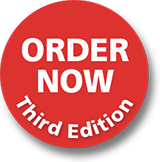Chapter 2 – Oral language
Chapter Summary
Language is vital for three reasons: children need to learn language, they learn through language and learn about language. As children learn language they become aware of sounds (phonemes), words and word order (syntax), and meaning (semantics). Pragmatics is the social use of language which has to do with selecting language to suit a particular purpose, and vocabulary or lexicon is knowledge about words and word meanings. From birth onwards, infants and toddlers experiment with sounds, words and word order, and by the time they are 3–4 years old they have a large vocabulary.
By the time children begin school they have a vocabulary of between 2500 and 4000 words. Children’s preschool vocabulary is highly predictive of reading and writing in later schooling. The early childhood teacher is important for extending children’s oral language, learning about language, learning through language, phonemic awareness and writing skills. Language involves meaning making and serves in many different functions: to satisfy personal needs, to control others, to interact socially with others, to express ideas about self, to explore new things and test knowledge, to use the imagination and to communicate information. There are several spoken language genres with associated features that teachers can use with children: recounts, narratives, procedures, explanations, reports and arguments. The teacher’s spoken language program may reflect different theoretical orientations about how children learn, which will affect the kinds of activities they provide. In many early childhood settings, play in real-life play centres stimulates the use of language for a range of purposes. The activities planned to extend children’s language include reading aloud, dramatising stories and storytelling, as well as posing questions and scaffolding children’s language.
Study Questions
Main ideas
What are the key components of oral language? Define each key component.
Provide teaching examples of the main genres of oral language. Can you also describe the language features of each genre?
Application to a developmental stage
What are some of the main differences between oral language and written language? How will the differences between oral and written language affect how you teach a child beginning school?
Diverse learners
Think about the key components of oral language and how the different components may affect language learners with learning difficulties linked to autism or hearing loss. What could you do as a teacher to discover ways to support young children?
Assessment
What teacher-made oral language assessments are useful for an age group that you may teach?
Teaching plans
Explore the oral language activities in Figure 2.11. Using a picture book, plan a series of activities based on the oral language activities in the left-hand column. Be creative as some activities require your imagination.

